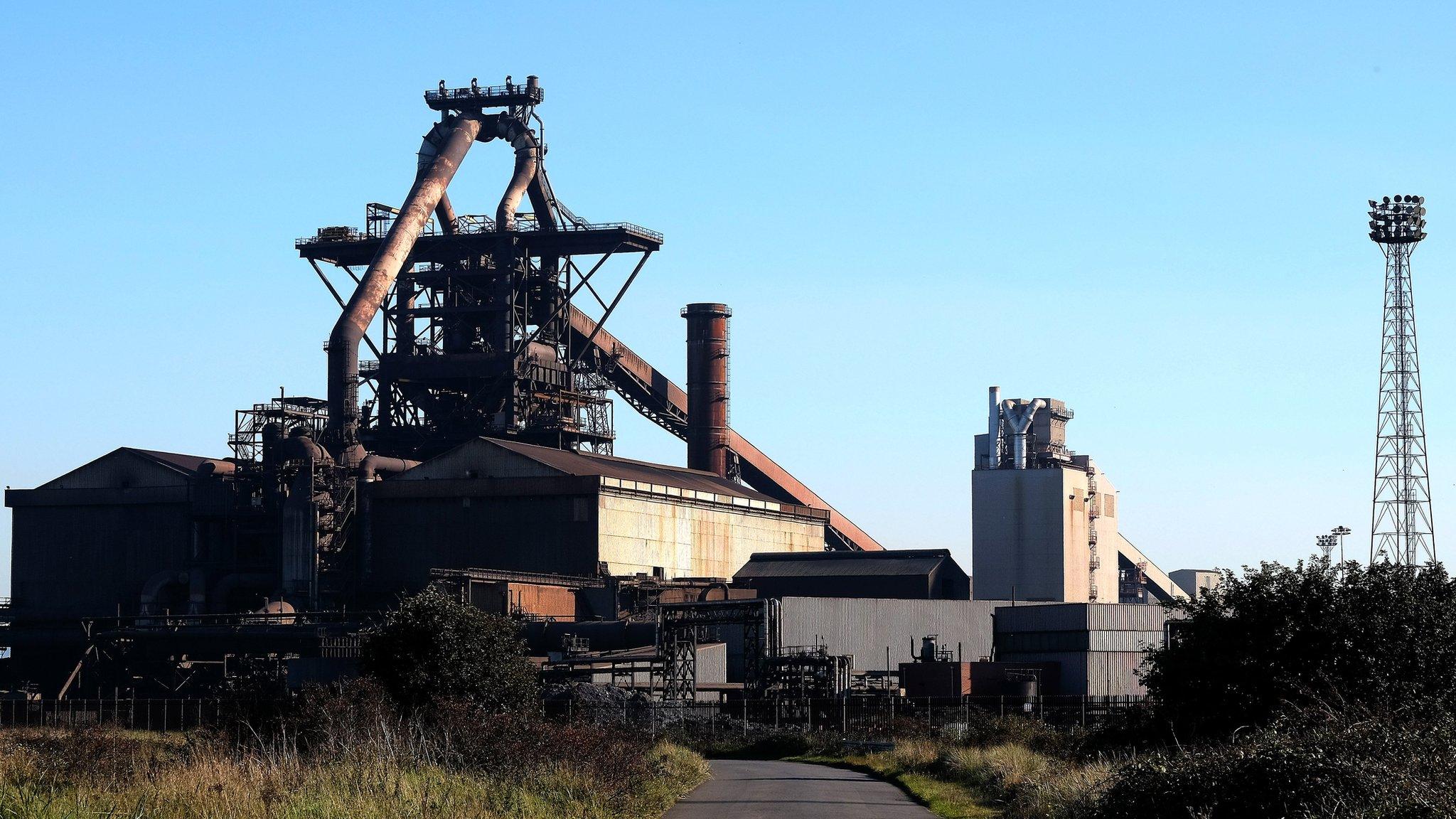270 jobs go as Tata Steel closes two plants in Scotland
- Published
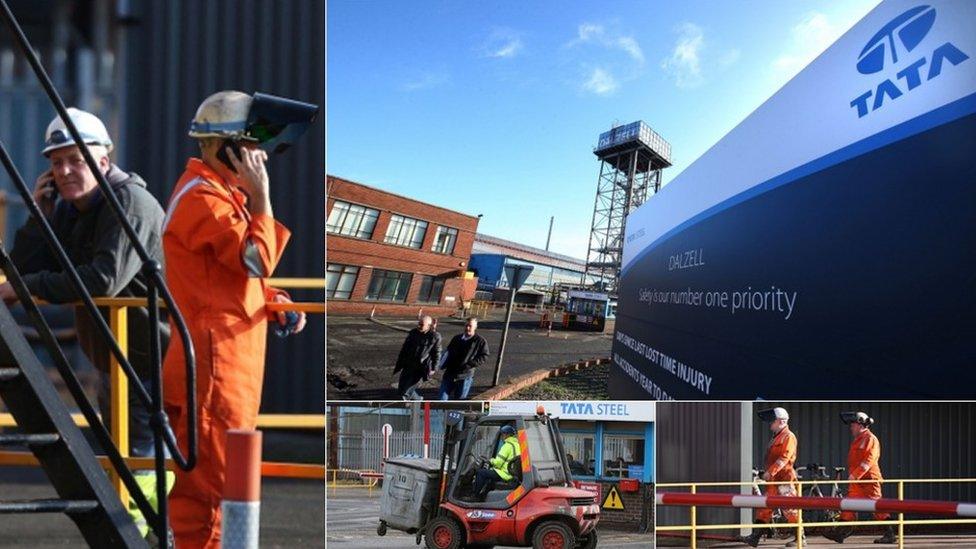
Workers at the Tata Steel plant in Motherwell were told it was closing with the loss of 225 jobs
Steel firm Tata has confirmed that it is to close its two plants in Scotland with the loss of 270 jobs.
The company said 225 jobs would go at the Dalzell plate rolling works in Motherwell and 45 posts at the Clydebridge plant in Cambuslang.
Both facilities will be mothballed and a further 900 posts will go at Tata's facility in Scunthorpe.
The firm blamed the cuts on a flood of cheap imports from China, a strong pound and high electricity costs.
'Employee hardship'
Karl Koehler, chief executive of Tata's European operations, said: "I realise how distressing this news will be for all those affected. We have looked at all other options before proposing these changes.
"We will work closely with affected employees and their trade union representatives.
"We will look to redeploy employees, wherever possible, and minimise employee hardship."
Mr Koehler said the UK steel industry was "struggling for survival in the face of extremely challenging market conditions".
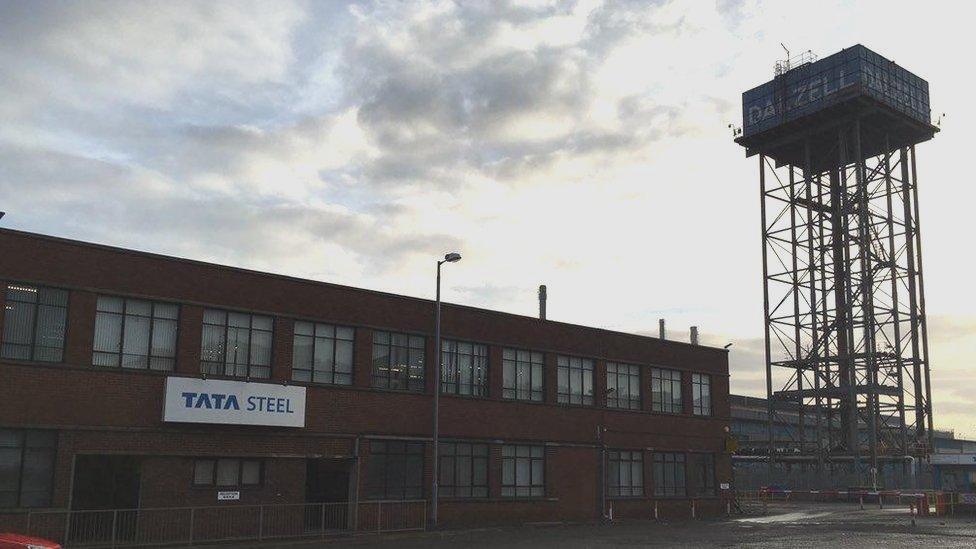
The Dalzell Steel and Iron Works opened in 1872
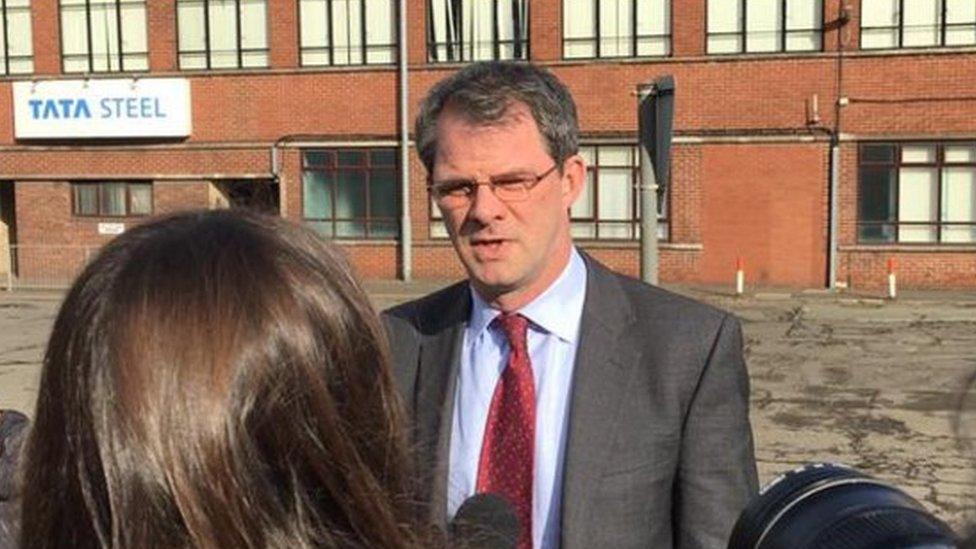
Tata Steel human resources director Tor Farquhar said he was "pessimistic" about the Scottish plants re-opening
Tor Farquhar, human resources director of Tata Europe said the firm did everything it could for the two Scottish plants.
He told the BBC that the collapse in steel prices due to cheap Chinese imports meant there was no way to make the plants profitable.
A buyer for the sites had not been found, he said, and it would be "extremely difficult" to do so.
Mr Farquhar said he was "pessimistic" that both mothballed Scottish plants would ever reopen.
'Fight for a future'
The decision to close the two Tata plants in Scotland effectively ends production at the country's last two major steelworks.
The Dalzell Steel and Iron Works opened in 1872, and Clydebridge in 1887.
The plants became two of the giants of Scottish industry, with Clydebridge providing steel plates which were formed into many of the most famous ships built on the River Clyde.
Neil Gregory has worked at the Clydebridge plant for nine years
First Minister Nicola Sturgeon said the Scottish government would establish a Scottish Steel Task Force "to fight for a future for our steel industry".
"This is a very anxious time for Tata Steel employees and their families and is deeply concerning for everyone involved," she said.
"My government is determined to fight for a future for our steel industry.
"That is why I have established a Scottish Steel Task Force - to be chaired by my Business Minister Fergus Ewing - that will bring together all the key representatives to work to keep the Dalzell and Clydebridge plants open."
The first minister, who is expected to visit Tata's Scottish plants later this week, added: "We will leave no stone unturned in our efforts to keep the plants open and support the 270 staff affected by today's announcement."

ANALYSIS
By Douglas Fraser, BBC Scotland business and economy editor
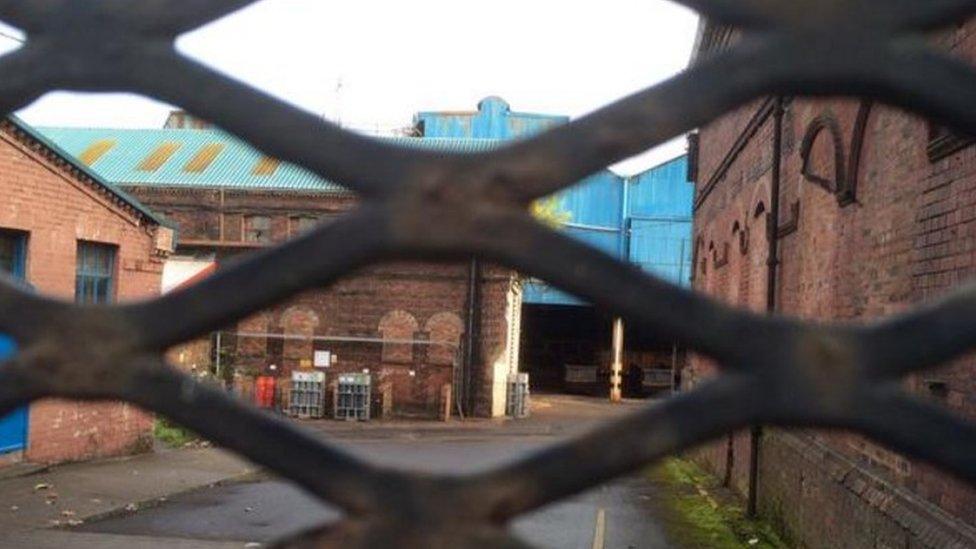
Britain's steel competes in a worldwide market. It has successfully sought out high-value, high-quality markets, and become much more efficient than in the days when 200,000 were employed in it.
But it faces three major disadvantages. One is that China is accused of dumping cheap, subsidised steel into western markets, because demand for China's vast output has dropped sharply with the nation's downturn.

Workers at the Dalzell plant told the BBC that the decision to close the site would impact the whole community.
One worker who had been with the company for more than 34 years described the closures as "pretty devastating".
He said: "It's a big blow to the community. There are a lot of sub-contractors and firms around here that rely on us buying from them; it's going to kill them as well. Long term it'll be a terrible thing."
Neil Gregory, who has worked at the Clydebridge plant in Cambuslang for nine years, told the BBC that the future for Scottish steel workers was now very uncertain.
"Everybody knew it was coming this morning, but when they actually tell you what's happening you're down," he said.
"There's 45 days minimum consultation for the guys, but it could go on longer we just don't know.
"We're just hoping that an investor comes in or the Scottish government do something to try and help us to keep these plants open."

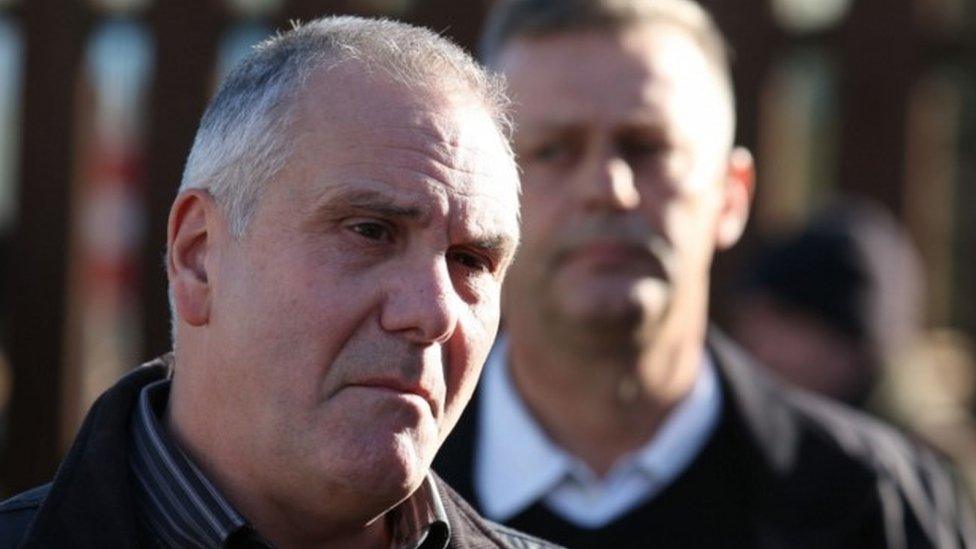
Ross Clark, trade union Community's lead representative at the Dalzell plant
Ross Clark, trade union Community's lead representative at the Dalzell plant, said: "Everybody's devastated and worried by today's news. We've faced a lot of challenges in this business and we've overcome them but now our future is uncertain.
"We welcome the fact the Scottish government is going to set up a taskforce and Community will play a full role in that.
"The taskforce must deliver on the promises the Scottish government has made in recent days to save our steel. It needs to come up with real, practical solutions that protect the workforce, the skills and the assets until we can find an alternative and sustainable future."
- Published20 October 2015
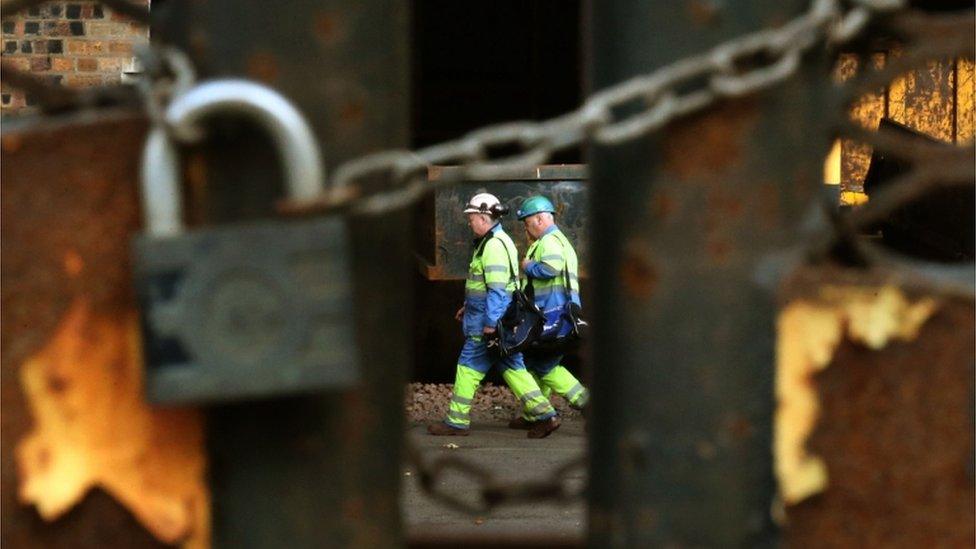
- Published20 October 2015
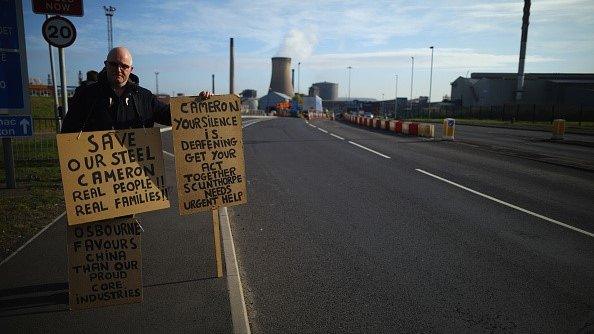
- Published20 October 2015
- Published18 October 2015
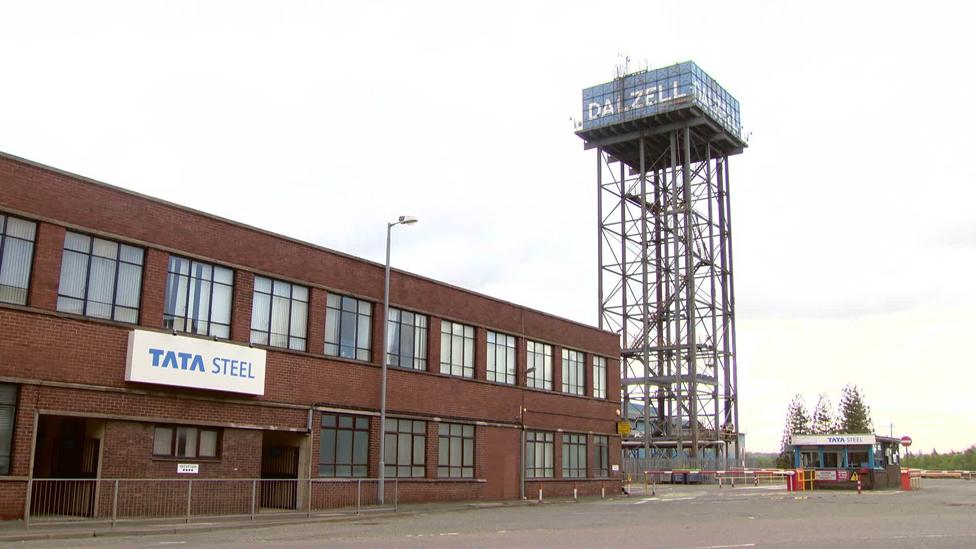
- Published17 October 2015
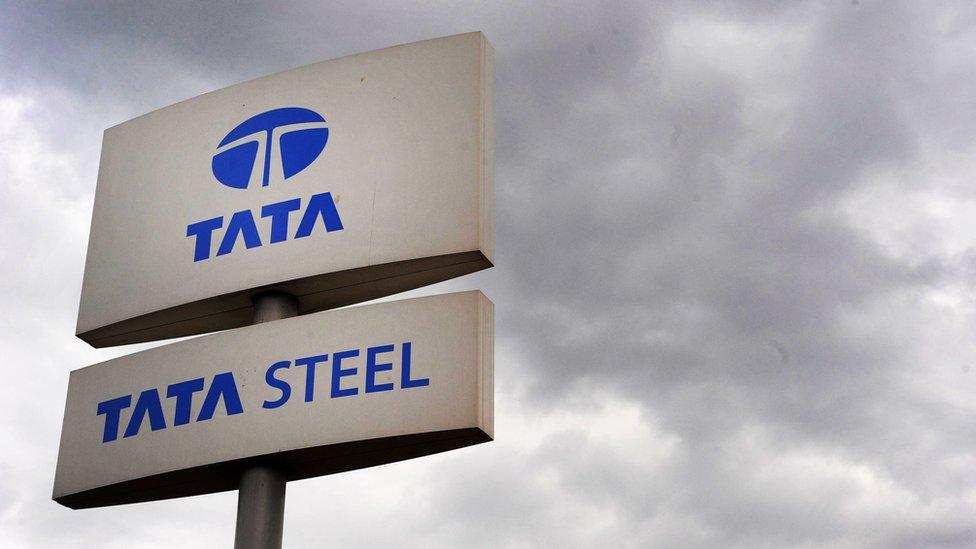
- Published16 October 2015

- Published16 October 2015
